★★★
“Should have paid more attention in history class.”
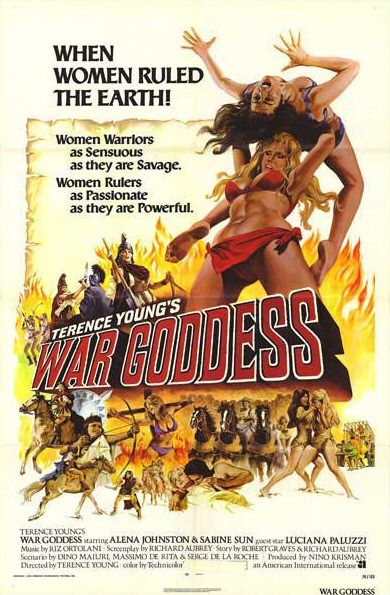 The Amazons are a tribe of women, who have seceded from the rest of the world, and set up a state purely composed of their own sex. For reproductive purposes, there’s an annual get-together with men – preceded by exercises to prevent any feelings except for abhorrence – and every four years, contests (javelin throwing, running, archery, etc.) to choose the queen. Which is where we come in, with blonde Antiope (Johnston) defeating brunette Oreitheia (Sun). The new ruler believes the tribe have gone soft, and also wants a return to a more egalitarian society; this doesn’t sit well with Oreitheia, or a lot of the other high Amazons, and a coup d’etat is soon being planned. Meanwhile, the annual Bonkapalooza poses problems of its own, as Antiope finds herself with feelings for Greek king Theseus (Infanti), who in turn feels guilty about having inadvertently sent the tribe into a Scythian ambush.
The Amazons are a tribe of women, who have seceded from the rest of the world, and set up a state purely composed of their own sex. For reproductive purposes, there’s an annual get-together with men – preceded by exercises to prevent any feelings except for abhorrence – and every four years, contests (javelin throwing, running, archery, etc.) to choose the queen. Which is where we come in, with blonde Antiope (Johnston) defeating brunette Oreitheia (Sun). The new ruler believes the tribe have gone soft, and also wants a return to a more egalitarian society; this doesn’t sit well with Oreitheia, or a lot of the other high Amazons, and a coup d’etat is soon being planned. Meanwhile, the annual Bonkapalooza poses problems of its own, as Antiope finds herself with feelings for Greek king Theseus (Infanti), who in turn feels guilty about having inadvertently sent the tribe into a Scythian ambush.
I don’t think I’ve often been so confused by a film’s approach, but this is so uneven in tone, I had to watch twice to get any kind of handle on it. For example, it starts with a jokey set of captions about how this maybe didn’t really happen, then swings in to the competition to be queen, peaking in seriousness with Antiope’s “pipe bomb” speech post-inauguration, which is radical to the point of almost revolutionary. But before you know it, you’re back to sub-Benny Hill antics involving bawdy comedy, or interpretive dance. This roller-coaster ride has Antiope apparently going from conception to birth in what feels like three days, without ever passing through pregnancy. It ends in a massive disappointment, which sees Antiope transformed from a warrior queen into little more than a simpering underling to Theseus, concerned that she might have to ask him for money to buy new sandals. Guess the sex war is over, guys – and we won. Woo-hoo!
Not to say there isn’t plenty here to enjoy, because it’s clear a lot of work went into this, and there’s no shortage of spectacle. Okay, some of it was work you might not have minded. According to Raw Panic, “Director Terence Young and colleagues reviewed 14,000 photographs and conducted “Miss Amazon” contests in Trieste, Paris, Hamburg, Munich, Rome and Nice to come up with the 100 women who are the Amazons.” Hey, it’s a dirty job, but someone’s got to do it… Those selected, “then endured a six-week training regimen that included riding, calisthenics and running from early in the morning until lights out. They did mostly their own stunts too; several girls had broken legs and one lost a finger under a chariot wheel.” If the results are somewhat uneven – some still look unsure about which end of a sword is which – most of the featured actresses are competent enough. Young is probably best known for his role in kick-starting the 007 franchise, directing both Dr. No and From Russia With Love – I was certainly reminded of the classic “gypsy camp catfight” sequence from the latter by a couple of moments here.
Yeah, if there are two scenes you’ll remember, it’s the brawls between Antiope and Oreitheia. The first is to decide who wears the crown, and involves the pre-fight application of “holy oil,” one suspects more for aesthetic than ecclesiastical considerations. The second is when Oreitheia’s midnight assassination attempt is uncovered, and appears to exist in two versions: one bikini-clad, the other entirely nude, depending on the market. You can catch a glimpse of the former in the trailer below; the less-encumbered, NSFW version can be seen in the Italian promo. Go ahead. We’ll wait for you here. :) There. Wasn’t that fun? Credit is due to both Johnston and Sun, who take on material that often strays to questionable or even laughable, with a straight-faced intensity which is rather more than it deserves. It’s a shame that some of the others involved, on the other side of the camera, weren’t apparently willing to take this as seriously.
Dir: Terence Young
Star: Alena Johnston, Angelo Infanti, Sabine Sun, Rosanna Yanni
a.k.a. Le guerriere dal seno nudo
a.k.a. The Amazons





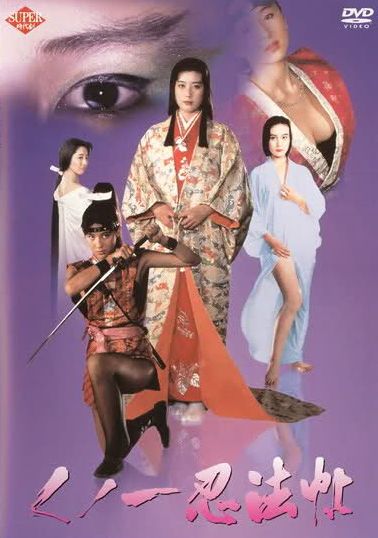
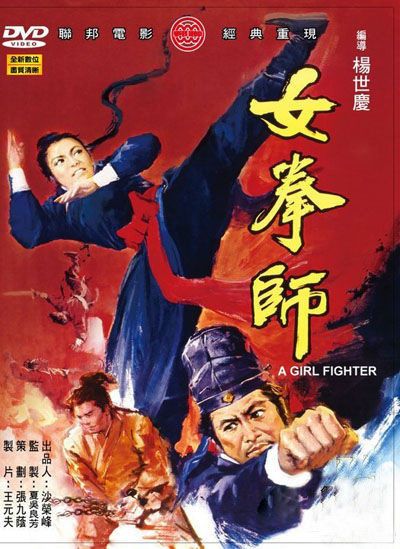
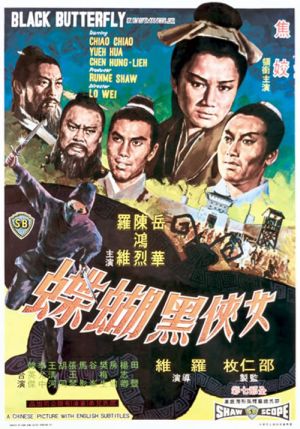
 In the late seventies, British television was notable for series which generally kicked ass on the performance front, but suffered from woefully inadequate production values. The most well-known example is Doctor Who, but that was just the tip of a dramatic iceberg which included the likes of Blake’s 7 and this series: in some cases, you can look past or ignore the deficiencies, because the acting is good enough to counteract them. That, sadly, isn’t the case here, with Phillips (a compatriot of Diana Rigg and Glenda Jackson at RADA) sadly adrift as Boudicca, the queen of the Iceni who takes on the occupying Roman forces after her daughters are assaulted. Having enjoyed the 2003 version, with Alex Kingston in the title role, I thought I’d give this one a chance, but when a supposed army of 6,000 is represented by four chariots and, maybe, ten guys in animal skins, it’s hard not to notice.
In the late seventies, British television was notable for series which generally kicked ass on the performance front, but suffered from woefully inadequate production values. The most well-known example is Doctor Who, but that was just the tip of a dramatic iceberg which included the likes of Blake’s 7 and this series: in some cases, you can look past or ignore the deficiencies, because the acting is good enough to counteract them. That, sadly, isn’t the case here, with Phillips (a compatriot of Diana Rigg and Glenda Jackson at RADA) sadly adrift as Boudicca, the queen of the Iceni who takes on the occupying Roman forces after her daughters are assaulted. Having enjoyed the 2003 version, with Alex Kingston in the title role, I thought I’d give this one a chance, but when a supposed army of 6,000 is represented by four chariots and, maybe, ten guys in animal skins, it’s hard not to notice.
 14th-century Norway, not long after the Black Death has decimated the population. Signe (Andreasen) and her family are on the road, seeking a new life, when they are attacked by bandits. Signe is captured and taken to their camp, ruled by Dagmar (Berdal); she was expelled from the nearby town, whose inhabitants thought she was a witch. Signe isn’t the first girl abducted to give the matriarch a family; there’s also Frigg (Olin), a younger girl whom Dagmar is inducting into the ways of the clan. But Frigg is not there yet, and help Signe to escape: needless to say, an enraged Dagmar and the rest of her gang, are soon hot in pursuit, chasing them across the chilly (and beautifully-photographed) wilderness.
14th-century Norway, not long after the Black Death has decimated the population. Signe (Andreasen) and her family are on the road, seeking a new life, when they are attacked by bandits. Signe is captured and taken to their camp, ruled by Dagmar (Berdal); she was expelled from the nearby town, whose inhabitants thought she was a witch. Signe isn’t the first girl abducted to give the matriarch a family; there’s also Frigg (Olin), a younger girl whom Dagmar is inducting into the ways of the clan. But Frigg is not there yet, and help Signe to escape: needless to say, an enraged Dagmar and the rest of her gang, are soon hot in pursuit, chasing them across the chilly (and beautifully-photographed) wilderness.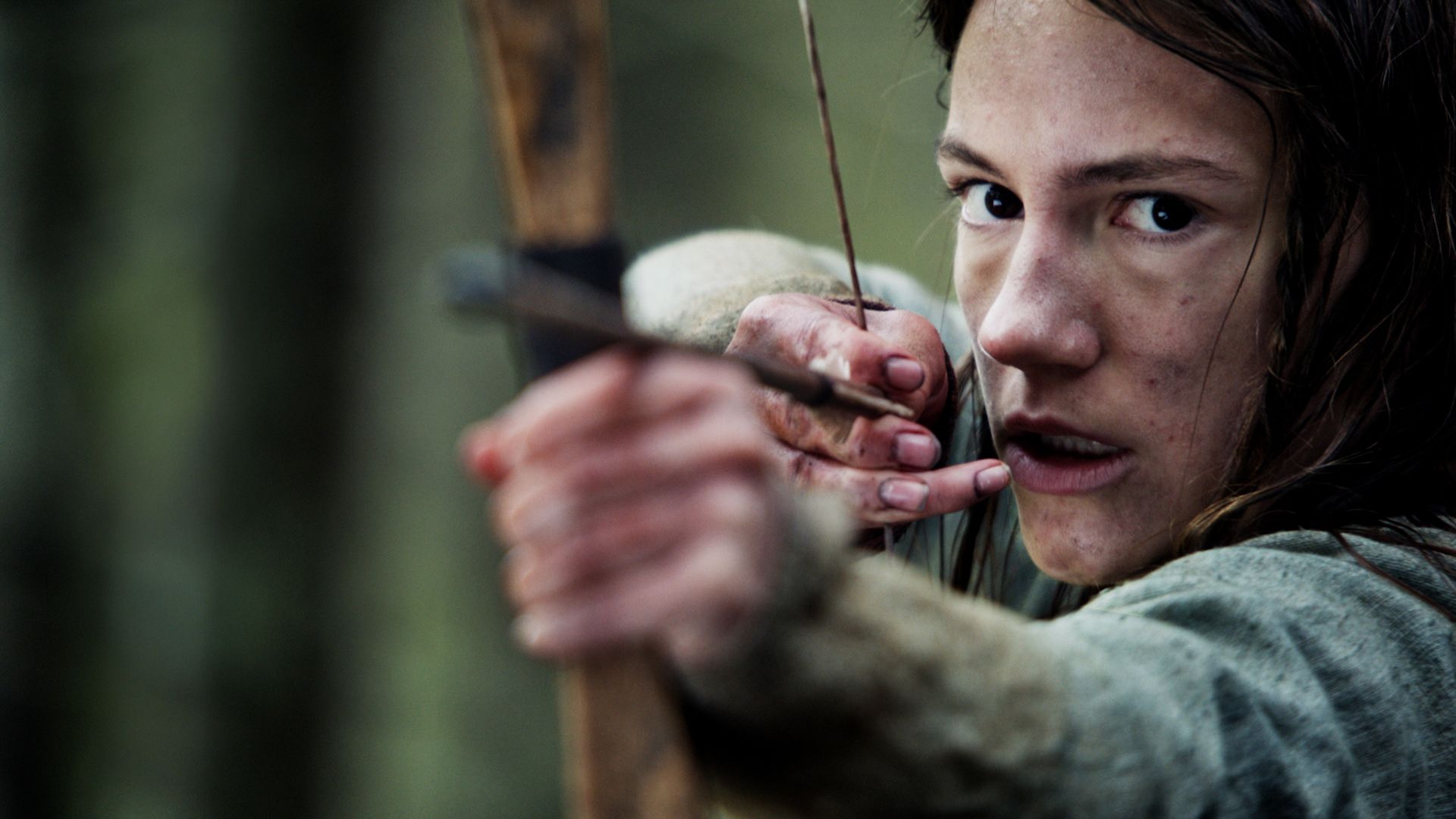
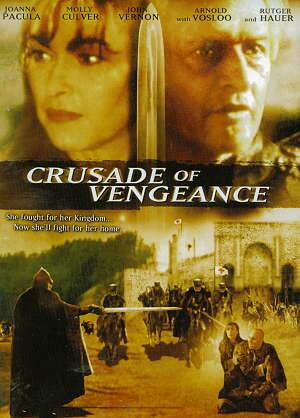 It’s easy to dismiss this, for its low production values, sometimes laughable dialogue and wildly-implausible plot – and I could hardly argue. Yet we still enjoyed this, thanks largely to performances which sustained us through the bad matte paintings, clunky lines, and mediocre action scenes. Of course, to use a pro-wrestling term, we’re huge Rutger marks, so seeing him as evil medieval warlord Grekkor is a big plus, harking back to his work in Flesh + Blood for Paul Verhoeven. Pacula is a “crusader mom” (for want of a better word), back from the Holy Land where she vowed to go after making a deal with God to let her son survive. However, she returns just after Grekkor and his sidekick (Vosloo) have swept her boy off with them. She goes to rescue him, teaming up with three other women on the way, as she heads towards the inevitable confrontation with Grekkor.
It’s easy to dismiss this, for its low production values, sometimes laughable dialogue and wildly-implausible plot – and I could hardly argue. Yet we still enjoyed this, thanks largely to performances which sustained us through the bad matte paintings, clunky lines, and mediocre action scenes. Of course, to use a pro-wrestling term, we’re huge Rutger marks, so seeing him as evil medieval warlord Grekkor is a big plus, harking back to his work in Flesh + Blood for Paul Verhoeven. Pacula is a “crusader mom” (for want of a better word), back from the Holy Land where she vowed to go after making a deal with God to let her son survive. However, she returns just after Grekkor and his sidekick (Vosloo) have swept her boy off with them. She goes to rescue him, teaming up with three other women on the way, as she heads towards the inevitable confrontation with Grekkor. Probably best to approach this with few expectations of this being a factual representation of the time; more than once, it felt clearly like the writer was using the Roman occupation of Britain, and Boudica’s rebellion, as a metaphor for American’s involvement in Iraq. There are certainly enough anachronisms, particularly in the dialogue (the Roman Emperor chatting informally away with the leader of a British tribe, and references to “terrorists”), that it seems deliberate. The basic story is the one well-known of legend: after her husband’s death, and the raping of her daughters by the invading Romans, Boudica (Kingston) led her tribe in an initially successful revolt, only to be stopped when the full force of the Empire was turned on them.
Probably best to approach this with few expectations of this being a factual representation of the time; more than once, it felt clearly like the writer was using the Roman occupation of Britain, and Boudica’s rebellion, as a metaphor for American’s involvement in Iraq. There are certainly enough anachronisms, particularly in the dialogue (the Roman Emperor chatting informally away with the leader of a British tribe, and references to “terrorists”), that it seems deliberate. The basic story is the one well-known of legend: after her husband’s death, and the raping of her daughters by the invading Romans, Boudica (Kingston) led her tribe in an initially successful revolt, only to be stopped when the full force of the Empire was turned on them. ★★★
★★★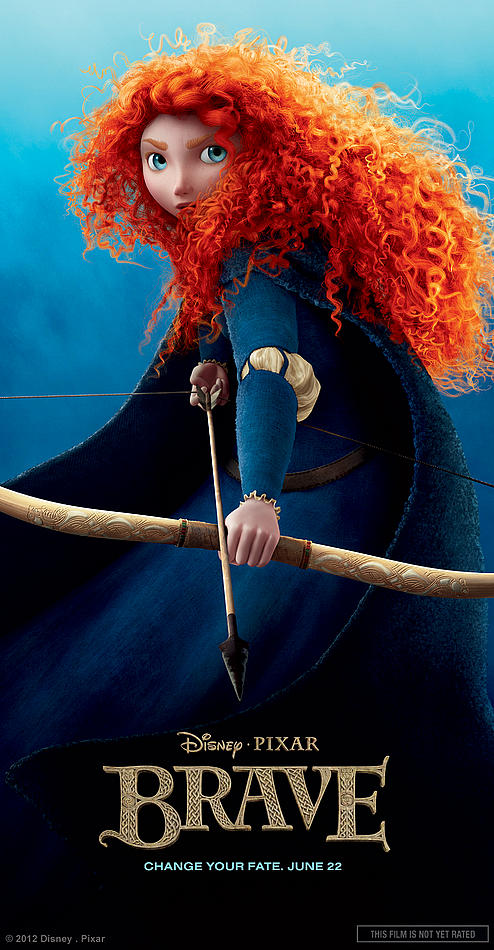 I was immensely stoked for Brave on a number of levels. First, Pixar kicks ass. With the exception of the underwhelming Cars and its pointless sequel, the quality of their work speaks for itself: Monsters, Inc is close to the finest animated movie of all time. Secondly, genuine action heroine films for the whole family are rare, to the point that they can probably be counted on the fingers of one hand over the past 25 years. Thirdly, it’s Scotland. Y’know, where I’m from. It’s the bit at the top of England. I feel I should mention this, because Pixar had originally tabbed Reese Witherspoon to voice the teenage, Scottish heroine, Merida. Fortunately, scheduling prevented this, and Pixar ended up with an all-Scottish lead cast.
I was immensely stoked for Brave on a number of levels. First, Pixar kicks ass. With the exception of the underwhelming Cars and its pointless sequel, the quality of their work speaks for itself: Monsters, Inc is close to the finest animated movie of all time. Secondly, genuine action heroine films for the whole family are rare, to the point that they can probably be counted on the fingers of one hand over the past 25 years. Thirdly, it’s Scotland. Y’know, where I’m from. It’s the bit at the top of England. I feel I should mention this, because Pixar had originally tabbed Reese Witherspoon to voice the teenage, Scottish heroine, Merida. Fortunately, scheduling prevented this, and Pixar ended up with an all-Scottish lead cast.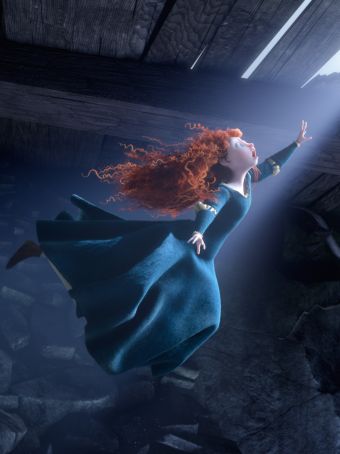 The problems are more with plotting – basically, the issue described above by Chapman is still present. The story starts in one direction, looking suitably action-oriented. It’s difficult to provide any specifics without giving spoilers – there’s a major plot-point not even hinted at in the trailers, which certainly surprised me. But I can see that it abruptly changes direction in the middle, going in a much less satisfactory direction, that seems almost to push Merida into the background of her own story. Even the climax relies less on any innate abilities of our heroine, such as her much-touted archery, or even her temperament, more the fortuitous toppling of a large geological entity [I doubt the film would have sold quite as well had it been named “Lucky”].
The problems are more with plotting – basically, the issue described above by Chapman is still present. The story starts in one direction, looking suitably action-oriented. It’s difficult to provide any specifics without giving spoilers – there’s a major plot-point not even hinted at in the trailers, which certainly surprised me. But I can see that it abruptly changes direction in the middle, going in a much less satisfactory direction, that seems almost to push Merida into the background of her own story. Even the climax relies less on any innate abilities of our heroine, such as her much-touted archery, or even her temperament, more the fortuitous toppling of a large geological entity [I doubt the film would have sold quite as well had it been named “Lucky”].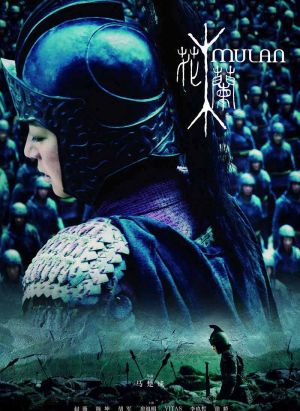 Inspired by the same poem as Disney’s much-loved feature, this has the same basic idea – a young woman impersonates a man in order to save her father from being drafted in the army. However, this takes a rather different approach, being much darker in tone, not that’s this is much of a surprise, I guess. It’s also a lot longer in scope, with Mulan (Zhao, whom you may recognize as the heroine/goalkeeper from Shaolin Soccer), rather than fighting a single campaign, becoming a career soldier and rising through the ranks as a result of her bravery in battle, eventually becoming a general, tasked with defending the Wei nation from the villainous Mendu (Hu). He has killed his own father in order to take control, and has united the nomadic tribes of the Rouran, amassing an army of 200,000 to invade Mulan’s home territory. She comes up with a plan to lure him into a trap, but when she is betrayed by a cowardly commander, things look bleak indeed for Mulan and Wentai (Chen), one of the few who know her secret.
Inspired by the same poem as Disney’s much-loved feature, this has the same basic idea – a young woman impersonates a man in order to save her father from being drafted in the army. However, this takes a rather different approach, being much darker in tone, not that’s this is much of a surprise, I guess. It’s also a lot longer in scope, with Mulan (Zhao, whom you may recognize as the heroine/goalkeeper from Shaolin Soccer), rather than fighting a single campaign, becoming a career soldier and rising through the ranks as a result of her bravery in battle, eventually becoming a general, tasked with defending the Wei nation from the villainous Mendu (Hu). He has killed his own father in order to take control, and has united the nomadic tribes of the Rouran, amassing an army of 200,000 to invade Mulan’s home territory. She comes up with a plan to lure him into a trap, but when she is betrayed by a cowardly commander, things look bleak indeed for Mulan and Wentai (Chen), one of the few who know her secret.